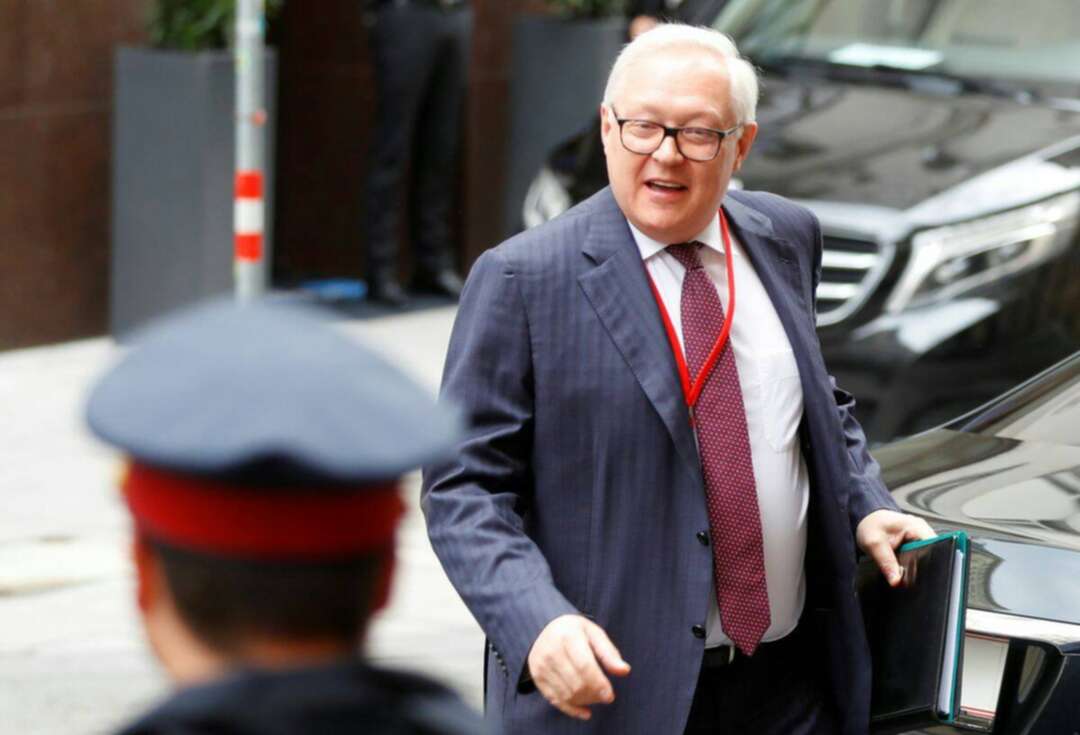-
Russia's deputy foreign minister criticized the American resolution not to rejoin Open Skies arms control pact

Russian deputy Foreign Minister Sergei Ryabkov arrives for a meeting with U.S. special envoy Marshall Billingslea in Vienna, Austria June 22, 2020. REUTERS/Leonhard Foeger
Reuters
Russia said on Friday a U.S. decision not to rejoin the Open Skies arms control pact, which allows unarmed surveillance flights over member states, is a "political mistake" ahead of a summit between the countries' presidents.
The original U.S. decision to quit the pact was taken last year by the administration of U.S. President Donald Trump, but Moscow had hoped his successor Joe Biden would reverse it.
On Thursday, however, the Biden administration informed Moscow that it would not re-enter the pact, accusing Russia of violating it, something Moscow denied.
Sergei Ryabkov, Russia's deputy foreign minister, said on Friday that Washington's move was a missed opportunity to bolster security in Europe.
"The U.S. has made another political mistake, inflicting a new blow to the European security system," TASS quoted him as saying. "We gave them a good chance, which they did not take. They continue circulating fabrications about Russia's violations of this agreement, which is completely absurd."
Separately, Kremlin spokesman Dmitry Peskov said Moscow regretted the U.S. decision, saying the Open Skies accord would lose much of its utility without the participation of Russia and the United States.
Russian President Vladimir Putin and Biden are due to hold a summit in Geneva next month and Ryabkov was cited as saying that the U.S. refusal to rejoin Open Skies did not create an atmosphere conducive to arms control discussions at the summit.
In January, Russia announced its own plans to leave the pact, and the government submitted legislation to parliament this month to formalise its departure.
At that time, a Kremlin spokesman said one reason was that the United States was still able to receive information acquired via the treaty from its NATO allies.
U.S. officials have said Russia has violated the pact's terms by restricting U.S. overflights of Russia's neighbour Georgia and the Russian enclave in Kaliningrad on the Baltic coast. Russia denies committing any violations.
The treaty, which was signed in 1992 and took effect in 2002, allows countries to conduct short-notice, unarmed surveillance flights over the entire territory of other parties and collect information on one another's military forces.
Its objective is to increase transparency and build confidence among countries.
Reuters, May 28, 2021/1:39 PM EEST
Image Copyright Reuters
Tags
You May Also Like
Popular Posts
Caricature
BENEFIT Sponsors BuildHer...
- April 23, 2025
BENEFIT, the Kingdom’s innovator and leading company in Fintech and electronic financial transactions service, has sponsored the BuildHer CityHack 2025 Hackathon, a two-day event spearheaded by the College of Engineering and Technology at the Royal University for Women (RUW).
Aimed at secondary school students, the event brought together a distinguished group of academic professionals and technology experts to mentor and inspire young participants.
More than 100 high school students from across the Kingdom of Bahrain took part in the hackathon, which featured an intensive programme of training workshops and hands-on sessions. These activities were tailored to enhance participants’ critical thinking, collaborative problem-solving, and team-building capabilities, while also encouraging the development of practical and sustainable solutions to contemporary challenges using modern technological tools.
BENEFIT’s Chief Executive Mr. Abdulwahed AlJanahi, commented: “Our support for this educational hackathon reflects our long-term strategic vision to nurture the talents of emerging national youth and empower the next generation of accomplished female leaders in technology. By fostering creativity and innovation, we aim to contribute meaningfully to Bahrain’s comprehensive development goals and align with the aspirations outlined in the Kingdom’s Vision 2030—an ambition in which BENEFIT plays a central role.”
Professor Riyadh Yousif Hamzah, President of the Royal University for Women, commented: “This initiative reflects our commitment to advancing women in STEM fields. We're cultivating a generation of creative, solution-driven female leaders who will drive national development. Our partnership with BENEFIT exemplifies the powerful synergy between academia and private sector in supporting educational innovation.”
Hanan Abdulla Hasan, Senior Manager, PR & Communication at BENEFIT, said: “We are honoured to collaborate with RUW in supporting this remarkable technology-focused event. It highlights our commitment to social responsibility, and our ongoing efforts to enhance the digital and innovation capabilities of young Bahraini women and foster their ability to harness technological tools in the service of a smarter, more sustainable future.”
For his part, Dr. Humam ElAgha, Acting Dean of the College of Engineering and Technology at the University, said: “BuildHer CityHack 2025 embodies our hands-on approach to education. By tackling real-world problems through creative thinking and sustainable solutions, we're preparing women to thrive in the knowledge economy – a cornerstone of the University's vision.”
opinion
Report
ads
Newsletter
Subscribe to our mailing list to get the new updates!






















